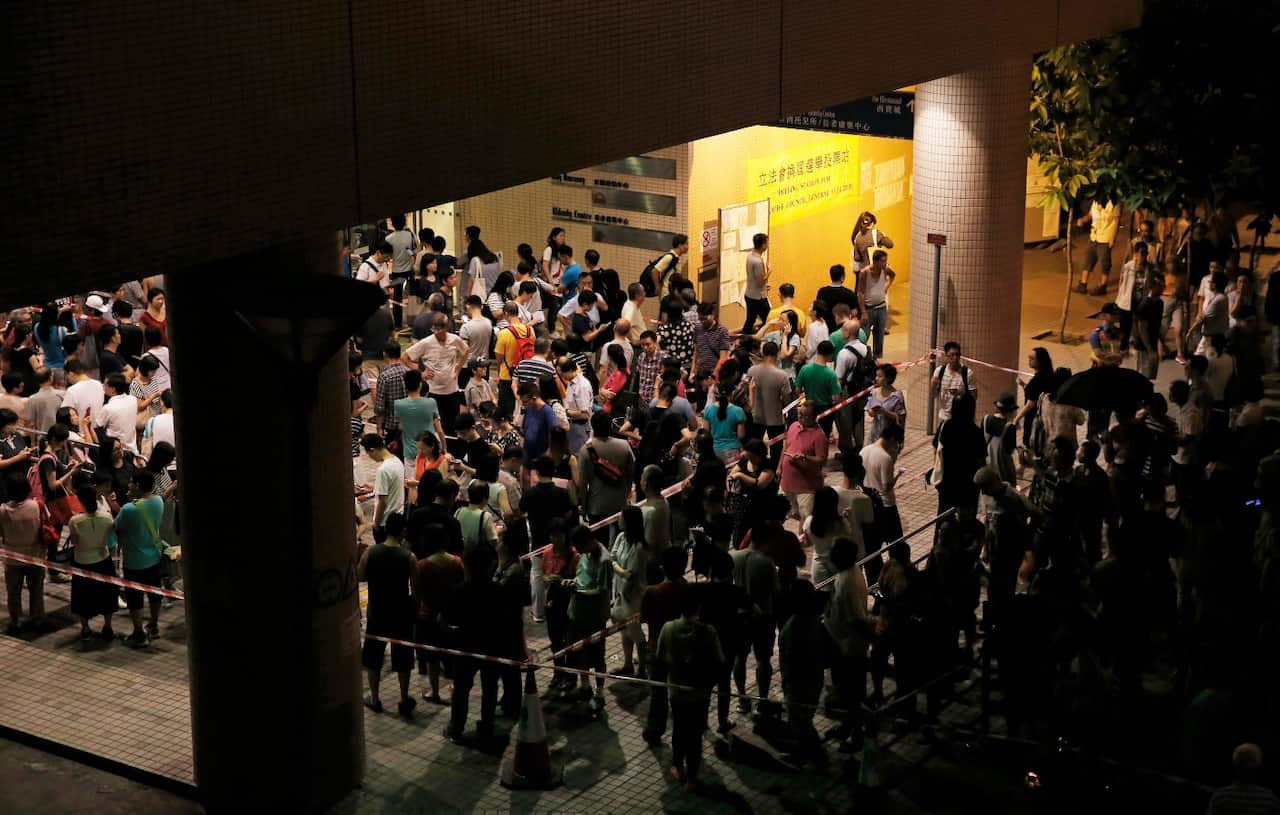Early indications showed some candidates advocating a break with Beijing are likely to become lawmakers.
The city-wide vote was the biggest since mass pro-democracy protests in 2014 and saw candidates fighting for seats in the Legislative Council (LegCo), as concerns grow that Beijing is tightening its grip on the semi-autonomous city.
At some polling stations there were snaking queues until until 2:30 am (1830 Sunday GMT) -- four hours later than the scheduled cut-off time -- with a turnout of almost 60 percent of 3.7 million voters.
That compares with 53 percent in the last LegCo elections in 2012.
"There was a record-breaking amount of people casting their ballots this year," Electoral Affairs Commission chairman Barnabus Fung told reporters Monday.

People queue at a polling station to vote for the legislative council election Sunday, Sept. 4, 2016. (AAP) Source: AAP
Counting got under way after 3:00 am, and results as of 5:30 am showed victories for some young "localist" activists who are pushing for more distance or complete independence from Beijing.
Former student leader of the 2014 "Umbrella Revolution" rallies, Nathan Law, whose new party Demosisto wants a referendum for Hong Kongers on whether they should stay part of China, is also likely to take a seat, according to early counting.
But most established pro-democracy politicians do not support the notion of independence and may lose seats to voters who now favour more radical new groups.
If the democrats lose just four seats overall, they will forfeit the one-third voting bloc they need to veto bills, stacking the already skewed legislature even more in favour of Beijing.
It is almost impossible for the democracy camp to take a majority in LegCo as 30 of its 70 seats are elected by special interest groups representing a range of businesses and social sectors. Those seats go predominantly to pro-Beijing candidates.
Only 40 seats are directly elected by the public.
Related reading

Protesters disrupt Hong Kong election meeting
Rolling results so far show long-established lawmakers from both the pro-democracy camp and the pro-Beijing camp have been re-elected.
Fears that Hong Kong's freedoms are disappearing were fanned after five city booksellers known for salacious titles about Beijing politicians disappeared, resurfacing in detention on the mainland.
That fuelled the fire of the "localist" movement, which grew out of the failure of the 2014 rallies to win political reform.
It saw the emergence of young campaigners demanding outright independence for Hong Kong -- a subject which was taboo until recently -- offering the chance for the city to determine its own future.
Hong Kong was handed back to China by Britain in 1997 under a "one country, two systems" agreement intended to protect its freedoms and partial autonomy for 50 years. However, many young campaigners believe that deal has failed.
Related reading

Hong Kong court clears pro-democracy protest leaders

